Demei's View - Wine Communication from a Chinese Winemaker
The winter solstice has passed, which means eyes are turning toward end-of-year festivities. Read LI Demei's column on finding the perfect wine for Chinese new year, including several of his own recommendations.
For the Western wine lovers, this is perhaps the most exhilarating period of the year (while enjoying a long vacation that lasts from Christmas to New Year).
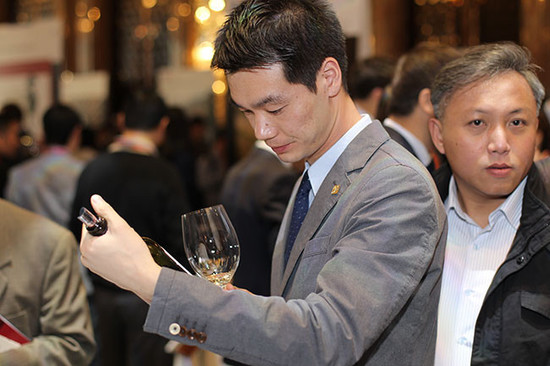 Image: Chinese consumers at 2015 Decanter Shanghai Fine Wine Encounter
Image: Chinese consumers at 2015 Decanter Shanghai Fine Wine Encounter
For Chinese people, the most important celebration of the year, Spring Festival, comes slightly later. It is the new year’s day of the lunar calendar, which usually comes at the end of January or at the beginning of February.
The Spring Festival of 2016 will come on 8 February. In China, we will have a continuous seven-day break, which will be the longest public holiday of the whole year.
Like Christmas, the Chinese New Year is about reunion of family—no matter where you are, no matter how old you are, you’re expected to visit and reconnect with your family at this time of the year, unless there are very special reasons.
The festival is also about gatherings and banquets, where good food and wine play a key role. Having that in mind, every family needs to prepare plenty of food and drinks before the big day, so they can treat their guests properly. ‘How’s your Spring Festival preparation going?’ is perhaps the most heard greeting during this time.
The ‘Nian Huo (new year goods)’ people buy are, therefore, indicators of market trend and social development.
In recent years, more and more grape wines have made their way on to family shopping lists. Therefore, how to recommend the perfect wines to consumers for Spring Festival has already become a heated topic in the wine business.
A personal experience of Spring Festival wine
This reminded me of my Spring Festival 14 years ago, when I tried to introduce a few wines at a family dinner.
To be honest, I put some serious effort into it: I carefully chose a good mixture of white, red and sweet wines, and I even brought some decent wine glasses with me.
While my sisters filled the table with delicious food, I started my wine demonstration. I served the wines as fast as I could, and at the perfect temperature; I also prepared a good speech on the background stories of these wines.
However, the cool-temperature white wines were received with hardly any affection; even after the highly anticipated red wines were poured, the appreciation expressed by my family was way below what I expected.
My brothers-in-law cautiously raised their glass and tried to follow my introduction, possibly in an effort to show some support. Seeing this, my father said, at the end, that as much as he appreciated my hard work, ‘Spring Festival is more about family getting together and having some fun. You are making us feel uncomfortable now…’
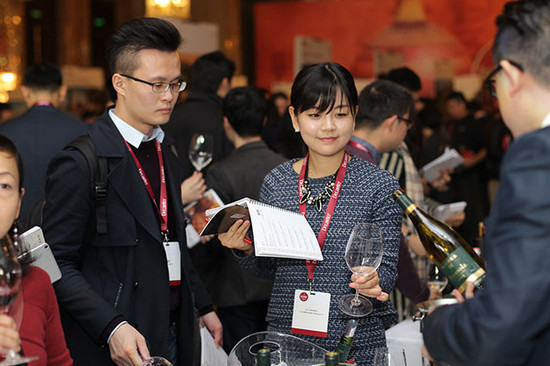 Image: Chinese consumers at 2015 Decanter Shanghai Fine Wine Encounter
Image: Chinese consumers at 2015 Decanter Shanghai Fine Wine Encounter
Imagine how I felt after hearing this?
The true event which happened 14 years ago left great impact on my perspectives on promoting wine.
The reason behind my failure was very simple: I tried to promote wines for the sake of promoting it, without considering the needs of the people on the table. So what do they want?
To begin with, the theme of the Spring Festival lies in the gathering of family members, and we’ll certainly have a mixture of age. Though part of the entire family might have lived together for a long time or have grown up together, there’re always new members, thus we will also have to consider their varied preferences and tastes.
The traditional Spring Festival feast, on the other hand, is served in the most ‘Chinese’ way, in which different dishes are displayed at the same time on the table, featuring a great diversity of flavours.
Finally, this is a family occasion, and the most important thing at this very moment is for people to reconnect and have a good time. Food and wine serve as the medium to that communication, but shouldn’t be the centre of attention.
LI Demei's best tips for wine at Spring Festival
Since we’re clear with the objectives, the logical qualities for spring festival wine should be:
• Widely acceptable. Try reducing the sheer number of wines chosen for the occasion, and make sure that any wine chosen is usually liked by many people. Similarly, the wines should be widely adaptable to food, so that it agrees with the majority of dishes on the table.
• Festive and cheerful. Wines that reflect some elements of Spring Festival are therefore the most ideal. For instance, wines named after such as ‘Chinese Zodiac’ or ‘Spring Celebration’, which started to appear in the Chinese market in recent years, are tailored to that specific need. ‘Red’ wines and ‘sparkling’ wines are both strong candidates to create a festive atmosphere.
• Sweet and tasty. Sweet wines are usually well-received among Chinese consumers. Even 14 years ago, though I failed to impress my family with the white and red wines, my sisters said they really liked the sweet wines I prepared for them (or it might have been a kind gesture as well).
When we surveyed Chinese consumers’ preference of flavours, we usually receive positive feedbacks on sweet wines.
Having said that, what worries me is that those who claim to like sweet wines are also those who would pay great attention to their diet and intend to lose weight all the time. For the sake of them, I will not recommend any sweet wines in my list.
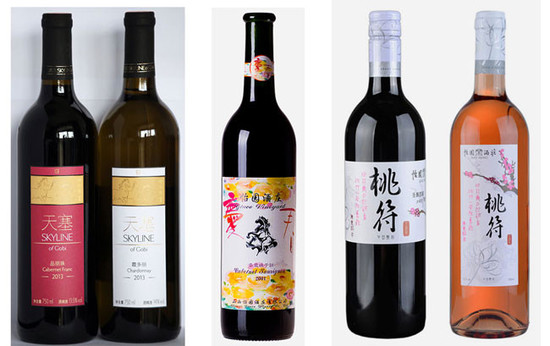 Image: spring festival wines from Tiansai winery and Grace Vineyard
Image: spring festival wines from Tiansai winery and Grace Vineyard
Demei’s recommended Chinese new year wines:
Red sparkling wines
If you only need one wine to cheer up everybody, a red sparkling wine may be the perfect choice. Speaking of ‘red sparkling wine’, many wine lovers may immediately think of Australian sparkling Shiraz.
In fact this year Zhongfei winery of Xinjiang also created a Cabernet Franc sparkling wine made via maceration. The red, dynamic bubbles are combined with pleasant red fruit nose and a vibrant, fresh mouthfeel, making it a wine-ish but highly approachable beverage.
The ‘nouveau’ wines
If you don’t want Baijiu (white spirit), beers or yellow wines, but would still like to have some some light-hearted alcohol on the table, the fresh and fruity ‘nouveau’ wines (fresh wines fermented and bottled soon after the latest harvest), may be a perfect choice.
The Tiansai winery of Xinjiang and Grace Vineyard of Shanxi both release wines of this style, namely the ‘Chinese Zodiac’ and the ‘Spring Celebration’ range.
The festive range released by Auswan Creek for the Chinese market, as well as the ‘Fresh Wine’ range of the ‘Ni Ya’ brand made by Xinjiang CITIC Guoan Wine, are both good choices, too.
Champagne
If you have a family member or a friend who is a wine lover like you, and you’d like to make a good impression, my suggestion would be to prepare a nice bottle of Champagne. This is the trick: when you can’t decide what to choose, Champagne is always a good choice.
If you’re looking for an affordable and classic Champagne in the Chinese market, I would recommend Deuzt (NV) and Dval Leroy (NV).
Translated by Sylvia Wu / 吴嘉溦
All rights reserved by Future plc. No part of this publication may be reproduced, distributed or transmitted in any form or by any means without the prior written permission of Decanter.
Only Official Media Partners (see About us) of DecanterChina.com may republish part of the content from the site without prior permission under strict Terms & Conditions. Contact china@decanter.com to learn about how to become an Official Media Partner of DecanterChina.com.


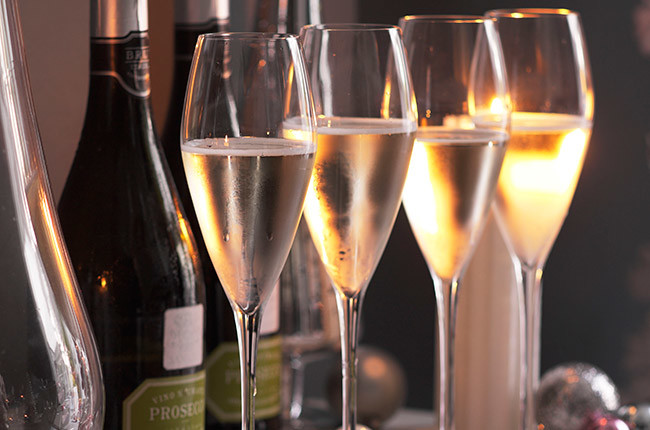
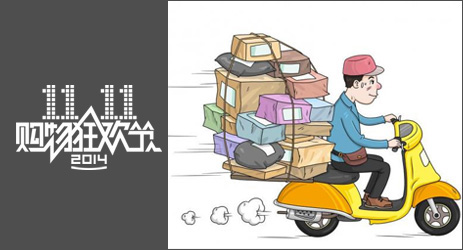
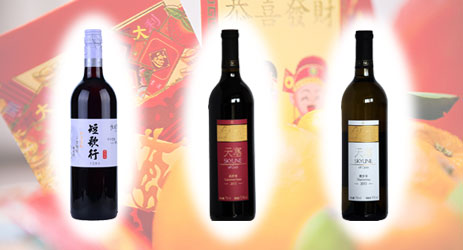
Comments
Submit